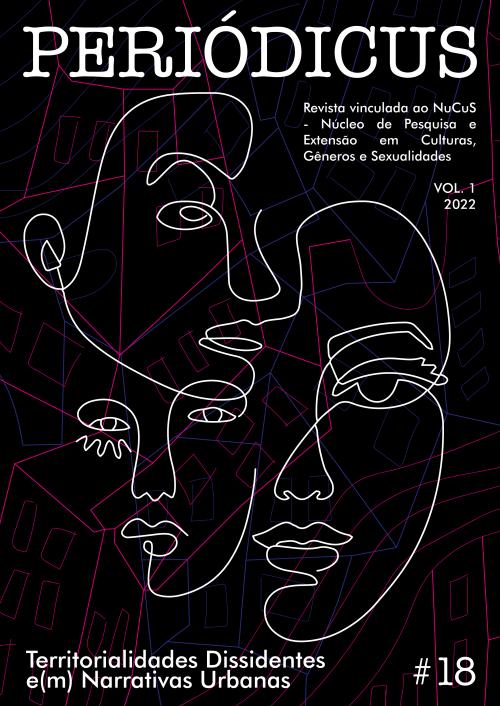Reinvention of interior trans bodies
Tieta and the becoming activist in the period of the pandemic
DOI:
https://doi.org/10.9771/peri.v1i18.49933Abstract
This paper proposes to discuss the creative power of the reinvention process of trans bodies of the interior. We sought to discuss the interior territory, from a decolonial perspective, in order to present some processes of singularization of dissident bodies, territorialize and affirm their border existence from these territories. Thus, the experience of Tieta, a transvestite who managed insurgency tactics, will be presented, given the conditions of extreme vulnerability to which people trans were exposed in Vitória da Conquista, city in the interior of Bahia, during the period of the covid-19 pandemic. It is stated that, the trans bodies of the interior, in their disruptive potency, make possible the composition of new territorialities and practices of freedom, by moving away from regulations. In addition, they elaborate other creative expressions, new affective and sexual bonds, new knowledge and reinvent their existence around common ways of life.
Downloads
Downloads
Published
How to Cite
Issue
Section
License
Copyright (c) 2022 Kueyla Andrade Bitencourt, João Diógenes Ferreira dos Santos

This work is licensed under a Creative Commons Attribution-NonCommercial 4.0 International License.
Authors who publish in this journal agree to the following terms:
Authors retain copyright and grant the journal the right of first publication, with the work simultaneously licensed under a Creative Commons Attribution Noncommercial License that allows the work to be shared with acknowledgment of authorship and initial publication in this journal, but prohibits commercial use.
Authors are authorized to enter into separate additional contracts for non-exclusive distribution of the version of the work published in this journal (e.g., publishing in an institutional repository or as a book chapter), with acknowledgment of authorship and initial publication in this journal.
Authors are permitted and encouraged to publish and distribute their work online (e.g., in institutional repositories or on their personal website) at any point before or during the editorial process, as this can generate productive changes and increase the impact and citation of the published work (see The Effect of Open Access).








